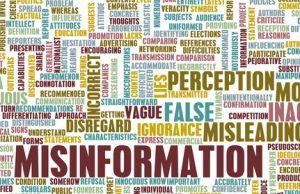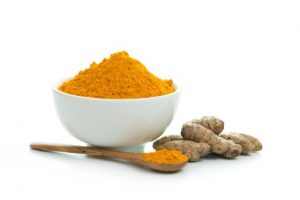How Research Scientists Can Be Fooled
Author: Dr. Stephen Chaney
Curcumin is considered the active ingredient of turmeric, which has been used as a traditional medicine on the Indian subcontinent for thousands of years.
I don’t need to tell you that curcumin and turmeric are hot right now. If you read the blogs and Facebook posts, you are led to believe that curcumin and/or turmeric will reduce inflammation; cure cancer and Alzheimer’s Disease; treat erectile disfunction, baldness, and hangovers; and even boost fertility. I haven’t come across any claims they will help you leap tall buildings with a single bound, but maybe I missed that Facebook post.
Where there is smoke, there is bound to be fire. There are dozens of curcumin and turmeric supplements and oils on the market. The companies selling them tell you their claims are based on published scientific studies. But, what if curcumin/turmeric research is bogus? What if the claims are false? What if the products don’t work?
How Supplement Companies Mislead You
 Everyone claims that their products are backed by research studies proving they work, but many of those claims ring hollow. In past issues of “Health Tips From the Professor” I have shared the many ways in which supplement companies try to mislead you with bogus research claims. For example:
Everyone claims that their products are backed by research studies proving they work, but many of those claims ring hollow. In past issues of “Health Tips From the Professor” I have shared the many ways in which supplement companies try to mislead you with bogus research claims. For example:
- Some claims of “proof” are completely bogus. They are made up.
- Some claims are based are what those in the supplement industry call “white papers.” Simply put, those are impressive looking studies appearing on their website or appearing in their ads that have never been peer-reviewed and published. If they have not gone through peer review and been accepted for publication, you have no idea whether they are valid or not.
- Some claims are based on what I call “borrowed science.” Simply put, the company is simply quoting research done on ingredients in their product, not research done on their product. They have no evidence that their product works.
- Some claims are based on studies published in what I call “advertising journals.” Simply put, an advertising journal does not submit the studies for peer review. If you are willing to pay their fee, they will publish your study. No questions asked! Again, without peer review you have no idea whether the study is valid.
I have advised you to look for studies done by reputable scientists and published in peer-reviewed scientific journals. In most cases, this is sufficient. But, what if even reputable scientists can be fooled? What if they misinterpreted the experiments they published?
How Research Scientists Can Be Fooled About Curcumin Benefits
 It turns out that natural compounds like curcumin are very difficult to work with. They can be deceptive. The claims about the benefits of curcumin and turmeric are a perfect example of how even reputable scientists can be fooled into reporting misleading information. This was highlighted in a recent review, (K.M. Nelson et al, Journal of Medicinal Chemistry, 60: 1620-1637, 2017 ), of hundreds of scientific papers on curcumin.
It turns out that natural compounds like curcumin are very difficult to work with. They can be deceptive. The claims about the benefits of curcumin and turmeric are a perfect example of how even reputable scientists can be fooled into reporting misleading information. This was highlighted in a recent review, (K.M. Nelson et al, Journal of Medicinal Chemistry, 60: 1620-1637, 2017 ), of hundreds of scientific papers on curcumin.
Curcumin has recently been categorized by medicinal chemists as a natural compound that fits into both the PAINS and IMPS classifications. Before you say: “What are you talking about,” let me sort that statement out for you. Medicinal chemists specialize in studying the chemical and pharmacological properties of natural compounds and their derivatives. Basically, they start with a natural compound like curcumin and determine whether it might be useful as a drug or a supplement.
PAINS is an acronym for pan-assay interference compounds. In simple terms, this means the compound is a pain to work with (Who says scientists don’t have a sense of humor?) because it interferes with most of the assays used to determine whether it is beneficial or toxic. In the case of curcumin, it binds to proteins, chelates metals, and interferes with fluorescent assays. It causes protein aggregation, membrane disruption, and structural decomposition of cells.
Basically, the authors of the review are saying that most reports of curcumin benefits are based on assays that were inaccurate because the scientist conducting the studies were unaware that curcumin interfered with the assays they were using. They were fooled because they did not fully understand the compound they were working with. They did not know it was a PAINS. Since 2009, at least 15 articles on curcumin have been retracted and dozens have been revised after publication.
The authors said: “While these failures would normally end further research on its use as a therapeutic, they have apparently not deterred researchers [and I would add companies] interested in its development.” Over 100 clinical studies and millions of research dollars have been invested in testing the beneficial effects of curcumin in humans. However, in the words of the authors: ”To our knowledge, curcumin has not been shown to be conclusively effective in a randomized placebo-controlled trial for any indication.”
That has led to its second classification as an IMP (invalid metabolic panacea). Again, you have to love the sense of humor of the scientists who came up with these acronyms.
Are Curcumin Benefits Bogus?
 According to this review, you can forget about the curcumin benefits you have been hearing about. It turns out that many of the research studies on which those claims have been based are misleading. The scientists who published the study were ethical. They did their best. They simply did not understand that curcumin was a PAINS to work with (pun intended).
According to this review, you can forget about the curcumin benefits you have been hearing about. It turns out that many of the research studies on which those claims have been based are misleading. The scientists who published the study were ethical. They did their best. They simply did not understand that curcumin was a PAINS to work with (pun intended).
Let me very briefly walk you through what the reviewers said about curcumin research.
- In vitro and cell culture experiments produced misleading results because curcumin interferes with the assays used to gauge its biological activity.
- Publication of these results led to a deluge of blogs and Facebook posts proclaiming the benefits of curcumin. These were repeated so often people started to believe they must be true. Another nutrition myth was born.
- Unscrupulous manufacturers sensed money to be made. Soon a flood of supplements and oils containing curcumin or turmeric hit the market. Manufacturers claimed their products had miraculous benefits based on the published research (much of which was incorrect).
- Meanwhile scientists started to meticulously evaluate the probability that curcumin might be a good drug or supplement candidate by looking at its bioavailability and stability. The results of those experiments were not promising.
- Less than 1% of curcumin is absorbed into the bloodstream. The rest is excreted into the feces, and there is no evidence that it has any beneficial effects on gut microflora.
- Once it enters the bloodstream, it has a half-life of less than 5 minutes.
- The breakdown products of curcumin are also unstable and/or have low biological activity.
- These results should have been enough to halt further interest in curcumin research. However, by that point the claims for curcumin benefits (based in misleading in vitro experiments) had taken on a life of their own. More than 120 clinical trials of curcumin have been conducted at a cost of over 150 million dollars.
- No double-blinded, placebo controlled clinical trial of curcumin has been successful.
The authors concluded: “Unfortunately, no form of curcumin, or its closely related analogs, appears to posses the properties required for a good drug candidate…The in vitro interference properties of curcumin do, however, offer many traps that can trick unprepared researchers into misinterpreting the results of their investigations. With respect to curcumin/cucuminoids and in vitro studies and clinical trials, we believe there is rather ‘much ado about nothing’.”
The curcumin saga is a cautionary tale. The internet abounds with amazing claims about the benefits of other herbs and spices. Many of the active ingredients of those herbs and spices are also PAINS compounds that interfere with the very biological assays used to assess their benefits. My advice is to take the claims about the miraculous benefits of herbs and spices with “a grain of salt.” In fact, the most beneficial effect of those herbs and spices is probably the salt they replace in the foods you eat.
The Bottom Line
Curcumin and turmeric are “hot” right now. The internet is filled with claims about their amazing benefits. There is a flood of supplements and oils containing curcumin or turmeric on the market.
However, a recent review of curcumin has thrown cold water on its supposed benefits. According to the review:
- Most of the benefit claims for curcumin are based on in vitro and cell culture assays. It turns out that curcumin interferes with these assays giving misleading results. In the words of the authors of the review: “The in vitro interference properties of curcumin offer many traps that can trick unprepared researchers into misinterpreting the results of their investigations.”
- Curcumin is a very unlikely candidate for a beneficial drug or supplement because:
- Less than 1% of curcumin is absorbed into the bloodstream. The rest is excreted into the feces, and there is no evidence that it has any beneficial effects on gut microflora.
- Once it enters the bloodstream, it has a half-life of less than 5 minutes.
- The breakdown products of curcumin are also unstable and/or have low biological activity.
- Curcumin has not been shown to be conclusively effective in a randomized placebo-controlled trial for any indication.
- The reviewers concluded: “With respect to curcumin/cucuminoids and in vitro studies and clinical trials, we believe there is rather ‘much ado about nothing’.”
The curcumin saga is a cautionary tale. The internet abounds with amazing claims about the benefits of other herbs and spices. Many of the active ingredients of those herbs and spices are also compounds that interfere with the very biological assays used to assess their benefits. My advice is to take the claims about the miraculous benefits of herbs and spices with “a grain of salt.” In fact, the most beneficial effect of those herbs and spices is probably the salt they replace in the foods you eat.
For more details about why the “benefit” of curcumin are likely bogus, read the article above.
These statements have not been evaluated by the Food and Drug Administration. This information is not intended to diagnose, treat, cure or prevent any disease.

